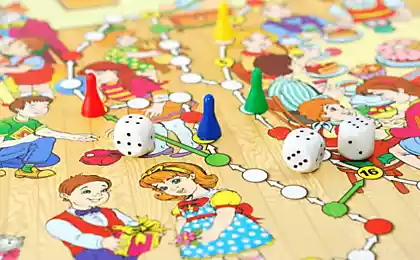691
Polite violence: I'm more IMPORTANT than YOU
Since then, as the generation of the 90s became an adult and meaningful, we, their parents, began to notice that they talk to us like were trained by a psychologist.
My daughter once wrote a letter to me from the next room: "Mom, I love you very much, but such treatment will not tolerate any more". I don't remember what I did, probably tried to manipulate, but instantly felt ashamed.
I was raised border. With me no one argued me no mind, I was just informed that my behavior is unpleasant.

It would be good to learn that we, the generation of 80-ies and 70-ies of birth. It is we the people who are often asked and ask questions and make comments and release the comments that cause us to turn white with rage compressed by fear or shame, many times over night to speak poisonous, witty answers that do not come to us on time. We are silent in response to these questions, or argue, but to no avail.
And they are known to everyone from our generation:
— You're twenty-seven, and married when?
— When you give birth to the second?
— Is it to learn? Guy you need to find.
— You have two years and can not count? You doctor show?
— You don't love fried potatoes? How can you not love fries? Why do you not love her?
— You're doing it wrong. I know better than to do.
Oh, my God, what misery.
— Come on, she's depressed. Potatoes go dig out, let it be.
— You have these curtains hung? And why these? Well, I'm your mother. Yellow would be better.
— I tell you — you will divorce him.
— You have nothing.
— You're embarrassing me in front of the neighbors.
— And people say what?
— You're never call. Ungrateful.
— Do not know, what you hesitate, and Svetka already won with the belly goes.
— You're fat, well, nothing. But the clever.
— You were deceived. Mark my words. You can't trust anyone.
— She's either in a penny does not put. Answer her like a man.
— The first place? Internship in Belgium? Umnichka! Good for you!
— You look wonderful for your age! Give me the phone your beautician.
Why these simple comments and questions, or even praise cause such pain? Because they, directly or indirectly, assesses. Evaluation is the prerogative of the parents, but when we are adults, we do not need to be assessed, if we do not expressly requested. When contact occurs "adult-adult" we need something else.
What needs an adult? Support. In the recognition. Respect. That you say — "you are my equal, and I respect you". In uninvited assessment contains meta-messages "I'm more important than you".
The most popular mistake that all of us do, when we attack so — to answer the content of the attack. Mutter, prove, hot, get into an argument. Arguing about the color of the curtains, the optimal time for marriage, compare ourselves Svetka in their favor with the help of trafficking "but rather," freaking out "good girl and molodchinki", — by the way, why? after all praised the same!
To praise an adult is to admit a serious amount of effort that he has invested in their achievement. "I know you were sitting the night on a project, it's well-deserved success." "Good boy" and "good for you" it's about the mud pies that the little baby made in his sandbox. Depreciation disguised as a compliment or praise, is quite common in dealing with people who do not have an honest good contact with his aggression.
How can that be? On the content of the attack to respond is pointless. Experience suggests that the other person in our culture almost never gets to the opponent's point of view. And what if to try to answer the fact of the attack? Here are three specific steps to follow:
Step one. Don't blame. Do not judge. Don't call.
And describe, literally quote what makes or pronounces your partner. Not "you always hurt me with his question about children." And "when you ask "when you have parents of a second", I hate. I believe that it is only our business."
Not "you forget to turn off the light in the kitchen and spit on my insomnia, but when you leave the light on in the kitchen, I can't sleep". Your answer should be based on the formula "description of the action or citing of the source plus your feelings on this issue." This is called "self-expression".
Step two. Be consistent.
The border is difficult to put a beloved and important people. And when the romantic impulse of your companion again calls you "baby" or "susic", and you hate it, it's hard to stop her. But if you already had a conversation on this topic, don't give up. Remind her about your request romantic nicknames to say only in the bedroom or in the kitchen. And have to remind you every time until she remembers.
Step three. Be congruent.
In psychology it is a coincidence verbalise and neverlike. If you say "Mr. Smith, your request to work at the weekend me uncomfortable and I won't be able to perform" sweet smile. Frown. You're probably asking to break or change personal plans, it really makes you smile? Ivan Ivanovich deftly react to the smile you fearfully demonstrate, and say -"Oh, come on, Since I know you, instead of beer come and sit down to work". But on your serious tone and furrowed brow to say "come on" is already much more complicated.
When you're alone
This life is written with my blood...
Unpleasant, not only and not so much the words said in a moment of affectionate attack us with advice, blandishment or assessment. The very fact of the violation of our borders. And when we are able to notice it and answer it, people who do so, in our environment diminished — we just cease to be for them so comfy. There are only those who are willing to reckon with us.published
Author: Yulia Rubleva
P. S. And remember, only by changing their consumption — together we change the world! ©
Source: timeallnews.ru/index.php?newsid=18834
My daughter once wrote a letter to me from the next room: "Mom, I love you very much, but such treatment will not tolerate any more". I don't remember what I did, probably tried to manipulate, but instantly felt ashamed.
I was raised border. With me no one argued me no mind, I was just informed that my behavior is unpleasant.

It would be good to learn that we, the generation of 80-ies and 70-ies of birth. It is we the people who are often asked and ask questions and make comments and release the comments that cause us to turn white with rage compressed by fear or shame, many times over night to speak poisonous, witty answers that do not come to us on time. We are silent in response to these questions, or argue, but to no avail.
And they are known to everyone from our generation:
— You're twenty-seven, and married when?
— When you give birth to the second?
— Is it to learn? Guy you need to find.
— You have two years and can not count? You doctor show?
— You don't love fried potatoes? How can you not love fries? Why do you not love her?
— You're doing it wrong. I know better than to do.
Oh, my God, what misery.
— Come on, she's depressed. Potatoes go dig out, let it be.
— You have these curtains hung? And why these? Well, I'm your mother. Yellow would be better.
— I tell you — you will divorce him.
— You have nothing.
— You're embarrassing me in front of the neighbors.
— And people say what?
— You're never call. Ungrateful.
— Do not know, what you hesitate, and Svetka already won with the belly goes.
— You're fat, well, nothing. But the clever.
— You were deceived. Mark my words. You can't trust anyone.
— She's either in a penny does not put. Answer her like a man.
— The first place? Internship in Belgium? Umnichka! Good for you!
— You look wonderful for your age! Give me the phone your beautician.
Why these simple comments and questions, or even praise cause such pain? Because they, directly or indirectly, assesses. Evaluation is the prerogative of the parents, but when we are adults, we do not need to be assessed, if we do not expressly requested. When contact occurs "adult-adult" we need something else.
What needs an adult? Support. In the recognition. Respect. That you say — "you are my equal, and I respect you". In uninvited assessment contains meta-messages "I'm more important than you".
The most popular mistake that all of us do, when we attack so — to answer the content of the attack. Mutter, prove, hot, get into an argument. Arguing about the color of the curtains, the optimal time for marriage, compare ourselves Svetka in their favor with the help of trafficking "but rather," freaking out "good girl and molodchinki", — by the way, why? after all praised the same!
To praise an adult is to admit a serious amount of effort that he has invested in their achievement. "I know you were sitting the night on a project, it's well-deserved success." "Good boy" and "good for you" it's about the mud pies that the little baby made in his sandbox. Depreciation disguised as a compliment or praise, is quite common in dealing with people who do not have an honest good contact with his aggression.
How can that be? On the content of the attack to respond is pointless. Experience suggests that the other person in our culture almost never gets to the opponent's point of view. And what if to try to answer the fact of the attack? Here are three specific steps to follow:
Step one. Don't blame. Do not judge. Don't call.
And describe, literally quote what makes or pronounces your partner. Not "you always hurt me with his question about children." And "when you ask "when you have parents of a second", I hate. I believe that it is only our business."
Not "you forget to turn off the light in the kitchen and spit on my insomnia, but when you leave the light on in the kitchen, I can't sleep". Your answer should be based on the formula "description of the action or citing of the source plus your feelings on this issue." This is called "self-expression".
Step two. Be consistent.
The border is difficult to put a beloved and important people. And when the romantic impulse of your companion again calls you "baby" or "susic", and you hate it, it's hard to stop her. But if you already had a conversation on this topic, don't give up. Remind her about your request romantic nicknames to say only in the bedroom or in the kitchen. And have to remind you every time until she remembers.
Step three. Be congruent.
In psychology it is a coincidence verbalise and neverlike. If you say "Mr. Smith, your request to work at the weekend me uncomfortable and I won't be able to perform" sweet smile. Frown. You're probably asking to break or change personal plans, it really makes you smile? Ivan Ivanovich deftly react to the smile you fearfully demonstrate, and say -"Oh, come on, Since I know you, instead of beer come and sit down to work". But on your serious tone and furrowed brow to say "come on" is already much more complicated.
When you're alone
This life is written with my blood...
Unpleasant, not only and not so much the words said in a moment of affectionate attack us with advice, blandishment or assessment. The very fact of the violation of our borders. And when we are able to notice it and answer it, people who do so, in our environment diminished — we just cease to be for them so comfy. There are only those who are willing to reckon with us.published
Author: Yulia Rubleva
P. S. And remember, only by changing their consumption — together we change the world! ©
Source: timeallnews.ru/index.php?newsid=18834
A good solution for hose storage for irrigation
Life in another country: There are things that are hard to get used to























